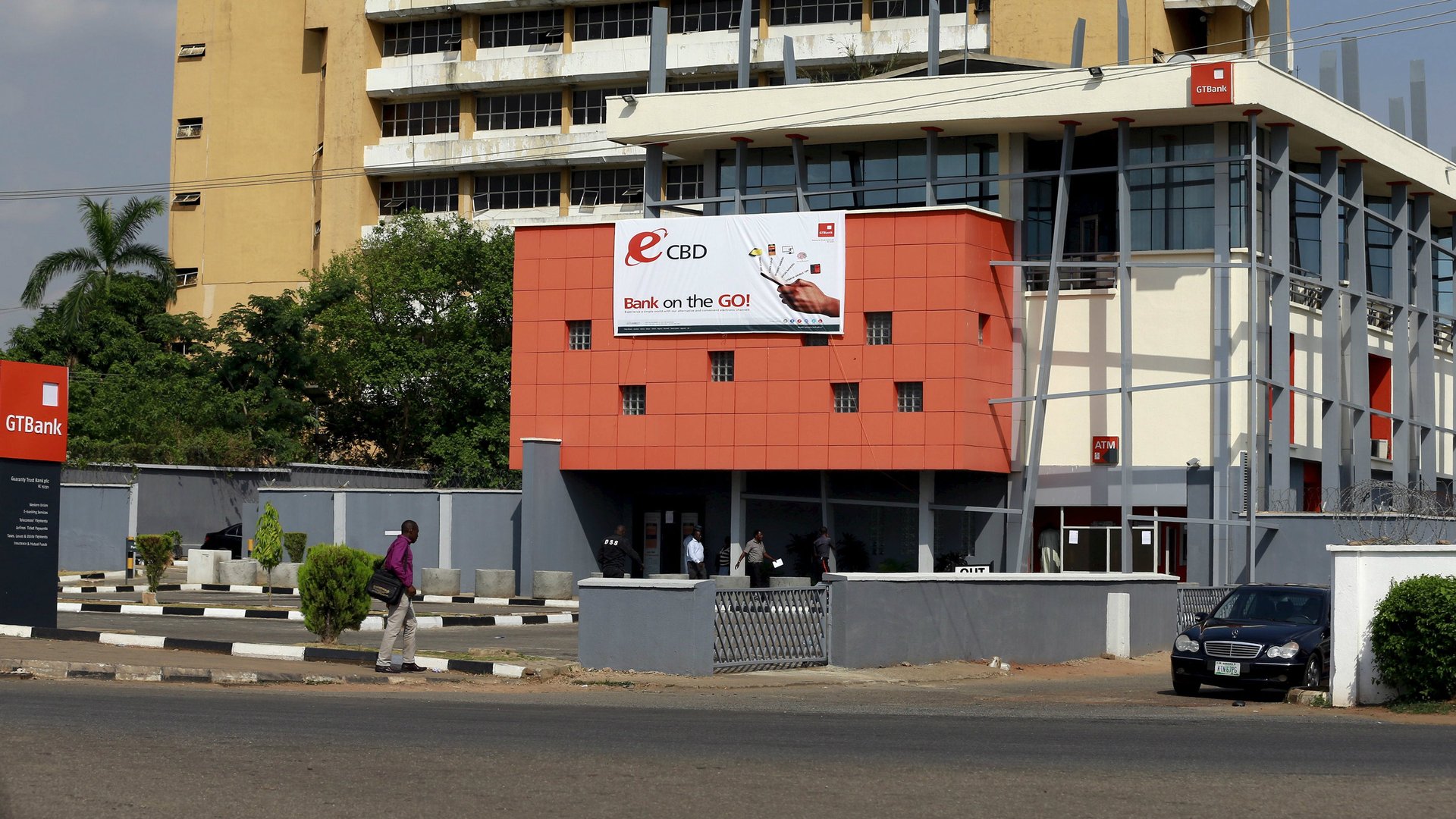Nigeria wants to shut banks who lay off staff due to the bad economy
Nigeria’s government is taking an unconventional approach in a bid to stop its rising unemployment rate from spiraling out of control.


Nigeria’s government is taking an unconventional approach in a bid to stop its rising unemployment rate from spiraling out of control.
The country’s labour minister ordered financial institutions to stop sacking workers and threatened a possible license withdrawal of banks who flout the order. The order comes after a fortnight which has seen financial institutions in Nigeria lay off workers en masse.
While the banks describe the retrenchment as part of a “renewed drive for optimal performance” and “market re-positioning exercise”, it’s widely believed the layoffs are a stark reaction to unfavorable economic headwinds in Africa’s largest economy. With a high non-performing loan rate in the banking system as well as the institution of a Treasury Single Account which required banks to pay all government cash in their coffers to the Central Bank, local banks reported profit declines in the first quarter of the year.
The layoffs also compounds Nigeria’s unemployment woes, with half a million people said to have lost jobs in the first quarter of the year. The increasing lack of job security has heaped even more pressure on the president Muhammadu Buhari who is faced with fixing a shrinking economy. In reaction, Buhari’s party, the ruling All Progressives Congress described the layoffs by banks as “sabotage” to discredit its government under which unemployment has spiked.
For its part, the government is hoping ease the unemployment crisis by rolling out mass recruitment exercises. Earlier this week, it flagged the hiring of 500,000 unemployed graduates into teaching positions. Similarly, at the start of the year, the government kicked off a recruitment exercise into the police force but the response was likely chilling evidence of the scale of the problem at hand as nearly a million people applied for the recruitment exercise which only listed 10,000 positions.